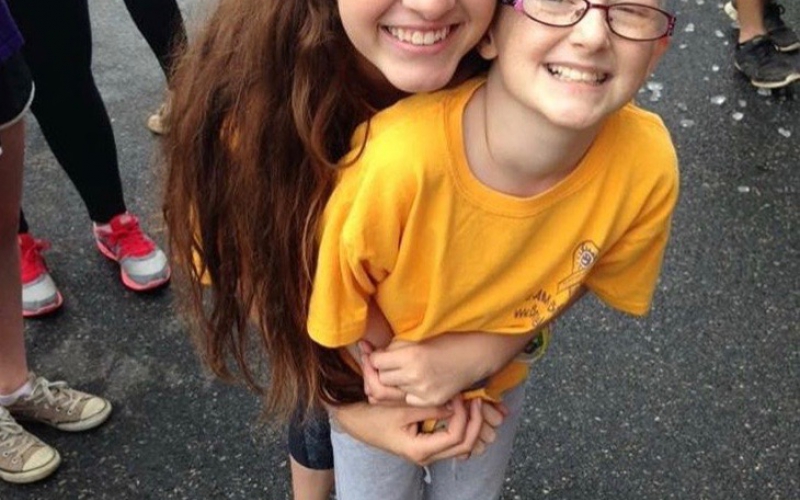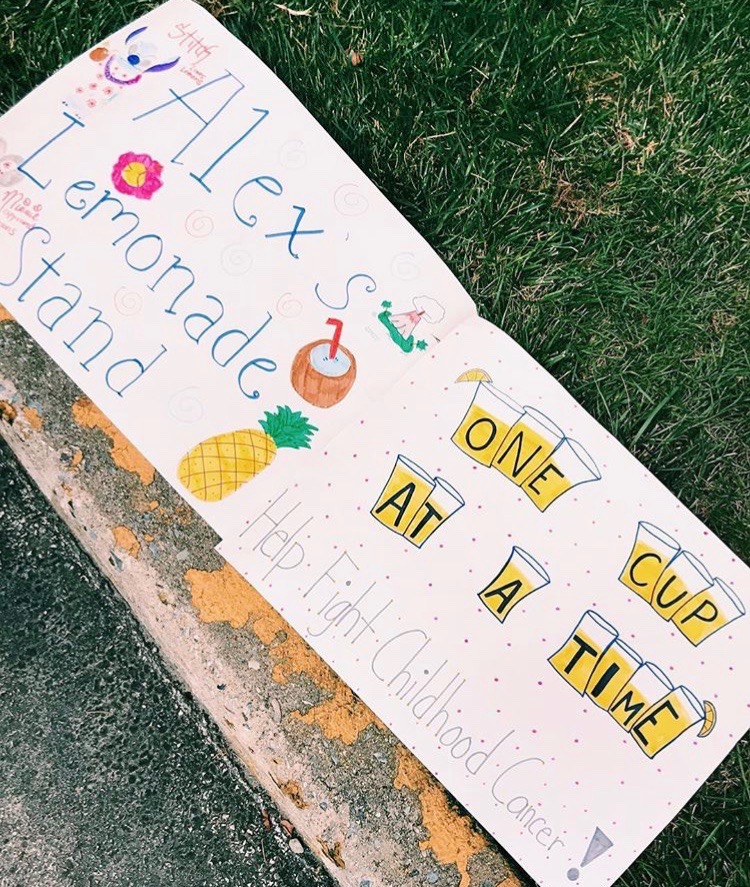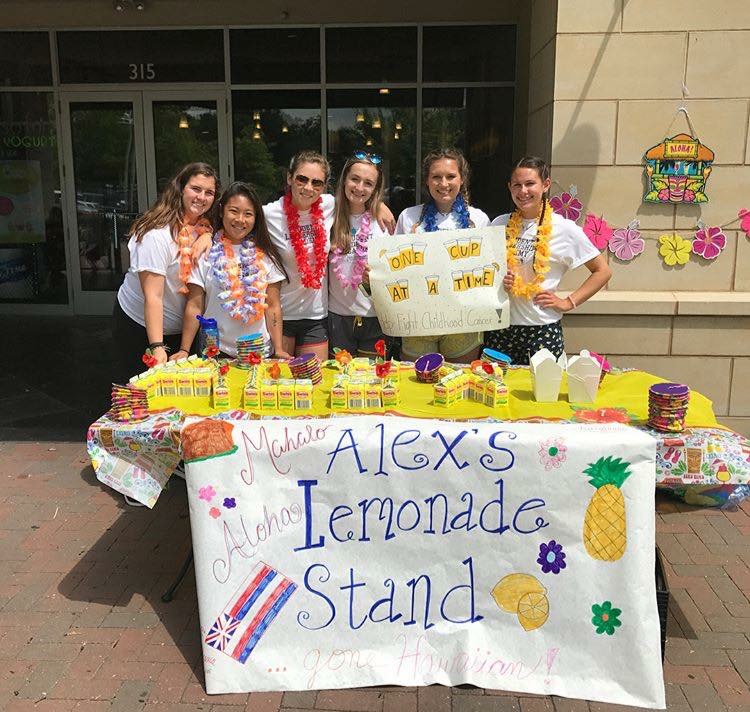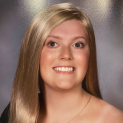
SLA attendee Reilley Connelly with hero Brooke Mulford. Brooke inspired Reilley to get involved with ALSF and to stay involved.
Reilley Connelly, a sophomore at Boston University, is a two-time ALSF Student Leadership Academy attendee. Reilley first discovered the Student Leadership Academy (SLA) as a junior in high school. Then last year, when the program opened to college freshmen, sophomores and juniors, Reilley applied again.
“Before the Student Leadership Academy, I had no idea how powerful one person could be to make a difference in the world,” said Reilley. Now, Reilley is taking the lessons she learned at the SLA to start a Lemon Club at her college and continue to fundraise for childhood cancer research.
The SLA is held each July at Villanova University outside of Philadelphia and attracts high school and college students from all over the world. Students learn about leadership, fundraising, childhood cancer research and gain valuable insights into how they can be change-makers in their community. This week-long experience includes an attendee-hosted lemonade stand.
Reilley shared her experience with us.
How has childhood cancer impacted your life?
Reilley Connelly (RC): Through my best friend, I met Brooke Mulford, who battled neuroblastoma and passed away this summer. The connection with Brooke was instant. She became such a big part of my life—she was someone my family talked about daily. Brooke and her mother, Amy, always shared the positive ways that ALSF impacted their lives. They introduced me to the Foundation and then I heard about the Student Leadership Academy and applied during my sophomore year. Then, I met ALSF founder Alex Scott's family during the SLA and it was a huge eye-opener. ALSF does make a difference greater than any other cause I’ve encountered and now I can be a part of it.

What was your first time at the Student Leadership Academy like?
RC: I still talk to the other students I was with at Villanova. Just those few days together impacted me for a lifetime. We all held a lemonade stand at the end of the week and I was amazed at how much money we could raise—thousands of dollars in such a short time—to help fund childhood cancer research. I loved the experience of hosting a lemonade stand the most.
Why did you go back?
RC: I saw that there was a college program and thought what a great way to further my experience. I had also thought about starting a Lemon Club at my college. I knew that going to the Student Leadership Academy would give me the tools and knowledge I needed to make that happen. Going back a second time; I had a whole new perspective. I was older and more of a young adult, who understood what was at stake and how important it is to support research for childhood cancer. This time we got to talk to researchers and see what the money goes to, which was really impactful.
What lessons have you brought back to Boston University?
RC: The first time helped me understand more about what the Foundation does and what it is all about. I also learned how to fundraise and better understand the effort that goes into securing donations. Now when I see others fundraising for causes they care about, I understand the effort that goes into that.
The second time helped me with my goal of starting a Lemon Club at Boston University. Our Lemon Club is officially approved at my school. We have lots of great plans to involve our large campus in fundraising for ALSF and to partner with other student groups, like fraternities and sororities.
What’s next for you?
RC: I am excited to get the Lemon Club up and running at my school. I am also interested in working in the health/life science field because of my experience with ALSF. My major is business administration and I’d love to focus on applying a business background to that field.

Since 2011, ALSF has trained 350 students, from 18 different states and 2 countries. The SLA attendees have also raised $33,953 for childhood cancer research, which funds 679 hours of research. For more information, please contact Gayla Freeman at [email protected] or (610) 649-3034

